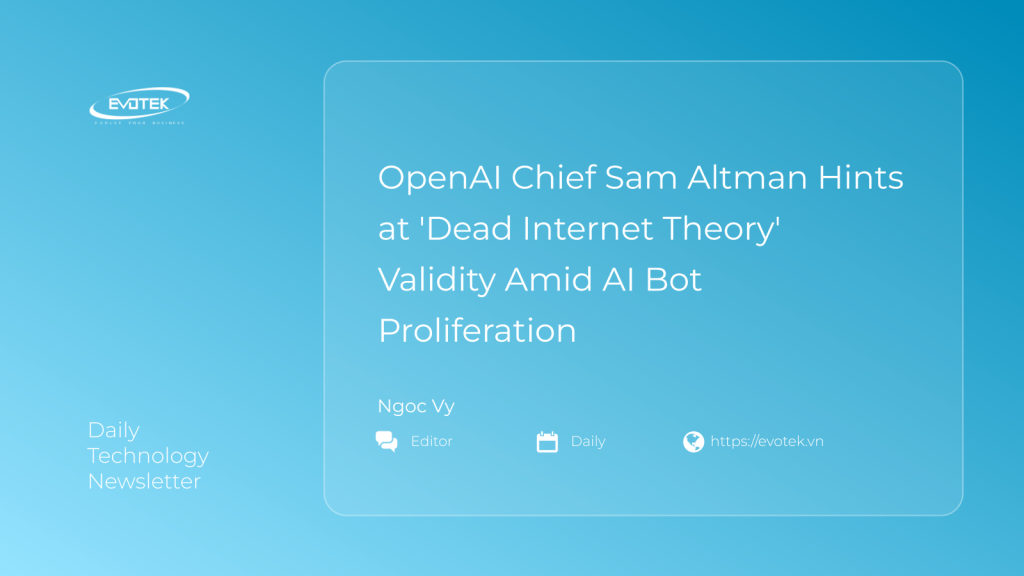Sam Altman, the CEO of OpenAI and creator of ChatGPT, has recently suggested that the long-dismissed “dead internet theory” might contain a kernel of truth. His surprising admission comes as artificial intelligence systems increasingly permeate the digital landscape, raising questions about online authenticity.
The “dead internet theory” is a speculative idea positing that a significant portion of online content and apparent user activity is no longer generated by humans but is, in fact, automatically created by computers. This theory suggests that the internet, as a vibrant human interaction space, is largely “dead” due to pervasive automation.
While frequently debunked in the past, the theory has gained renewed traction in recent years. This resurgence is fueled by the widespread adoption of powerful artificial intelligence technologies and persistent challenges in curbing bot activity on major platforms, including X (formerly Twitter).
Altman, who previously expressed skepticism about the theory, shared his evolving perspective in a recent statement. He remarked, “i never took the dead internet theory that seriously but it seems like there are really a lot of LLM-run twitter accounts now.” LLMs, or large language models, are the advanced AI technology underpinning ChatGPT and similar platforms like Anthropic’s Claude.
His comment quickly sparked an outcry from users and critics who pointed out the irony of his statement. Many argued that Altman’s leadership at OpenAI and the public release of ChatGPT in late 2022 directly contributed to the problem he was highlighting. ChatGPT’s accessibility democratized the creation of automatically generated content and posts, simplifying the process for both legitimate and malicious online actors.
Some observers also speculated that Altman’s concerns might be influenced by his work on the World Network, previously known as Worldcoin. Founded by Altman in 2019, the company aims to establish a method for humans to digitally prove their real identity online, often through eye scans. This initiative has been promoted as a potential solution to combat the pervasive influence of AI-powered systems and bots on the internet, offering a unique perspective on his current apprehension.
The ongoing debate underscores growing anxieties about the future of online interactions, the challenge of distinguishing human-generated content from AI, and the evolving role of artificial intelligence in shaping our digital reality.

 日本語
日本語 한국어
한국어 Tiếng Việt
Tiếng Việt 简体中文
简体中文